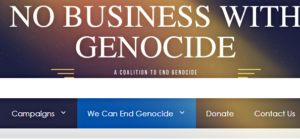Podcast: Play in new window | Download
Sexting Among Teens, A Felony
Because teenagers spend a good deal of their time online and on social media platforms, awareness has risen about related risks such as cyberbullying, shaming, and online predation. But then there’s sexting, the sharing between teens of explicit images. A study in the Journal of American Medical Association revealed that sexting is common among adolescents, with at least 1 in 4 teens receiving explicit texts and emails.
What we don’t hear much about are the legal consequences of such communications. In half of the states in this country, criminal laws classify the act of “sexting” among minors as a felony. New York, California, New Jersey, and Michigan are among those states. Their laws consider the exchange, possession, distribution, or production of explicit images of minors through sexting as felony offenses under certain circumstances. The specific criteria and penalties vary from state to state.
Teenagers who engage in sexting rarely realize the consequences of their actions. Since teens are minors, sharing nude or explicit or suggestive photos of themselves or their friends is considered child pornography. That means that possessing or sending the photos may amount to criminal possession or distribution of child pornography. If convicted for one of these offenses, young people may face severe penalties and life-long consequences.
Guest – Attorney Andy Stengel is a criminal defense attorney and former prosecutor in the Manhattan District Attorney’s Office who has also worked in the executive and legislative branches of New York State government and for the Brennan Center for Justice.
—-
No Business With Genocide
April is Earth Month, a time to think twice about our relationship with — and responsibility to — our planet and the ecosystem we rely on, and of course, our fellow living beings. With technology and social media, we have unprecedented access to information and images from all over the world. But witnessing natural disasters, wars and other untold suffering can be debilitating. Thankfully, there are people like today’s guest, to remind us that we, individually and collectively, have so much power to change the course of history and create a healthier world for future generations.
Guest – Simon Billenness, an advocate for environmental sustainability, human rights, corporate governance, and social justice. Described by the New York Times as “a super-specialist” in human rights advocacy, Simon has, for more than two decades, advised investors, non-profits, universities, communities, and unions in holding corporations accountable. He is currently the Executive Director of the International Campaign for the Rohingya and for the coalition-led campaign, No Business With Genocide. He also serves on the Business and Human Rights Co-group of Amnesty International USA.
———————————————




